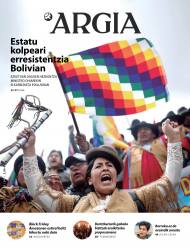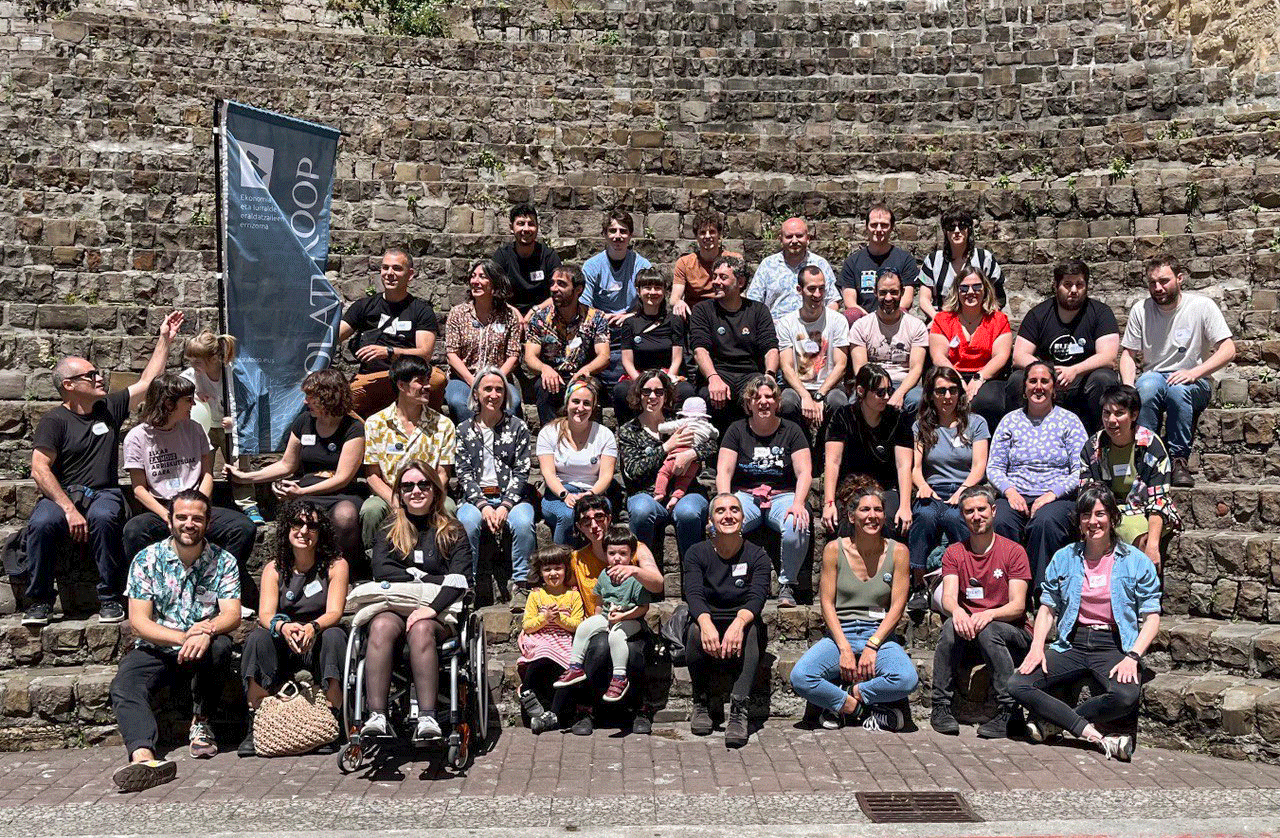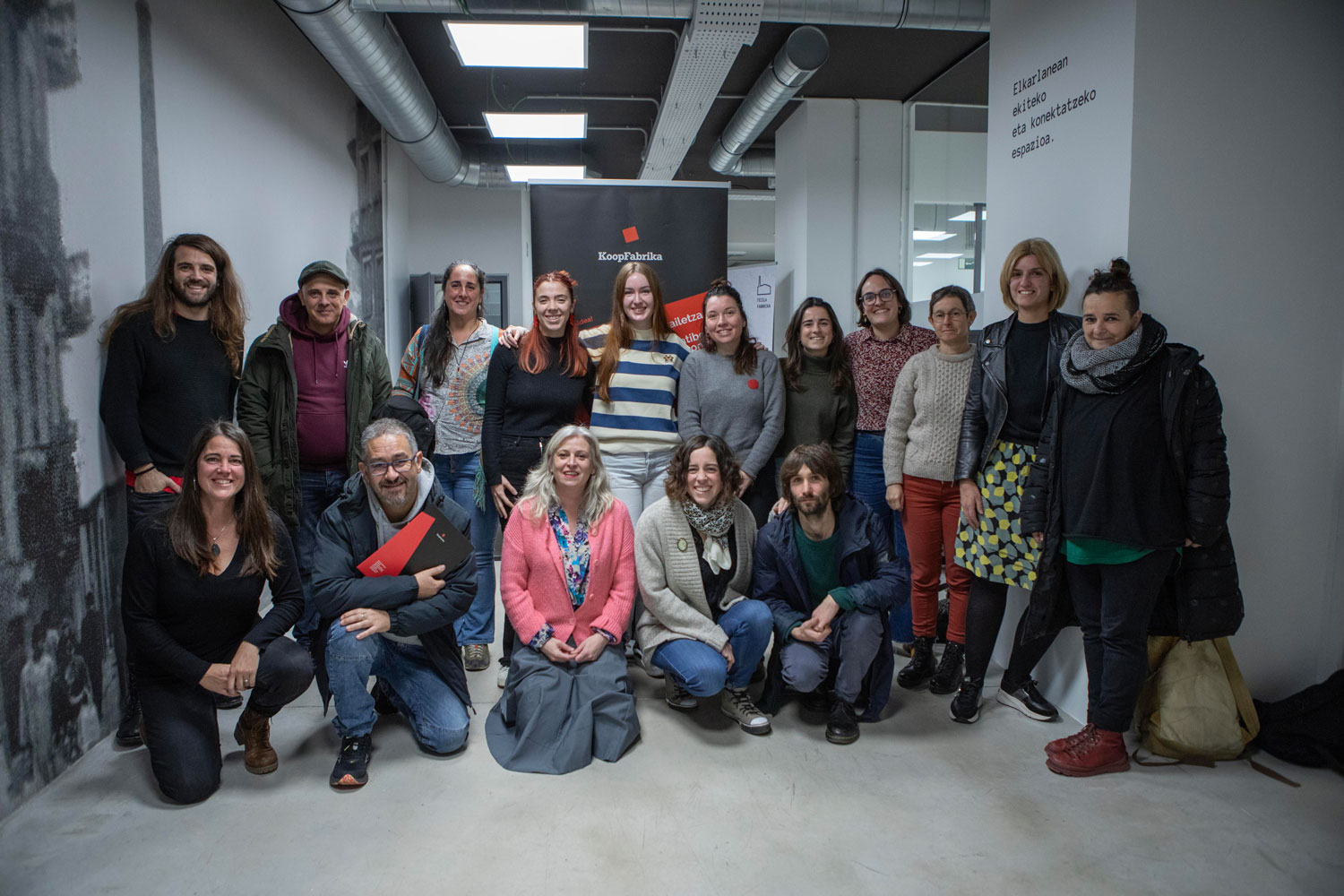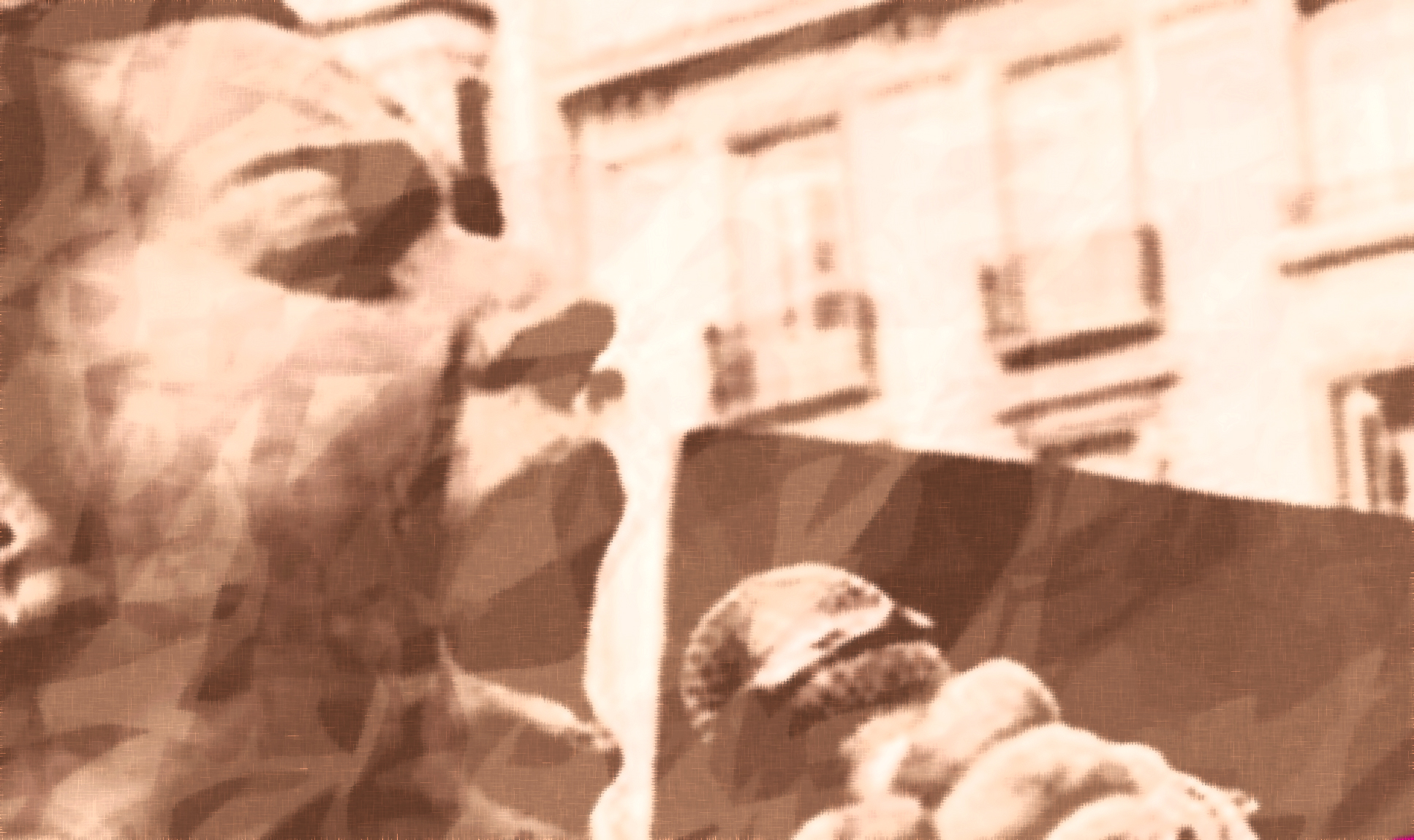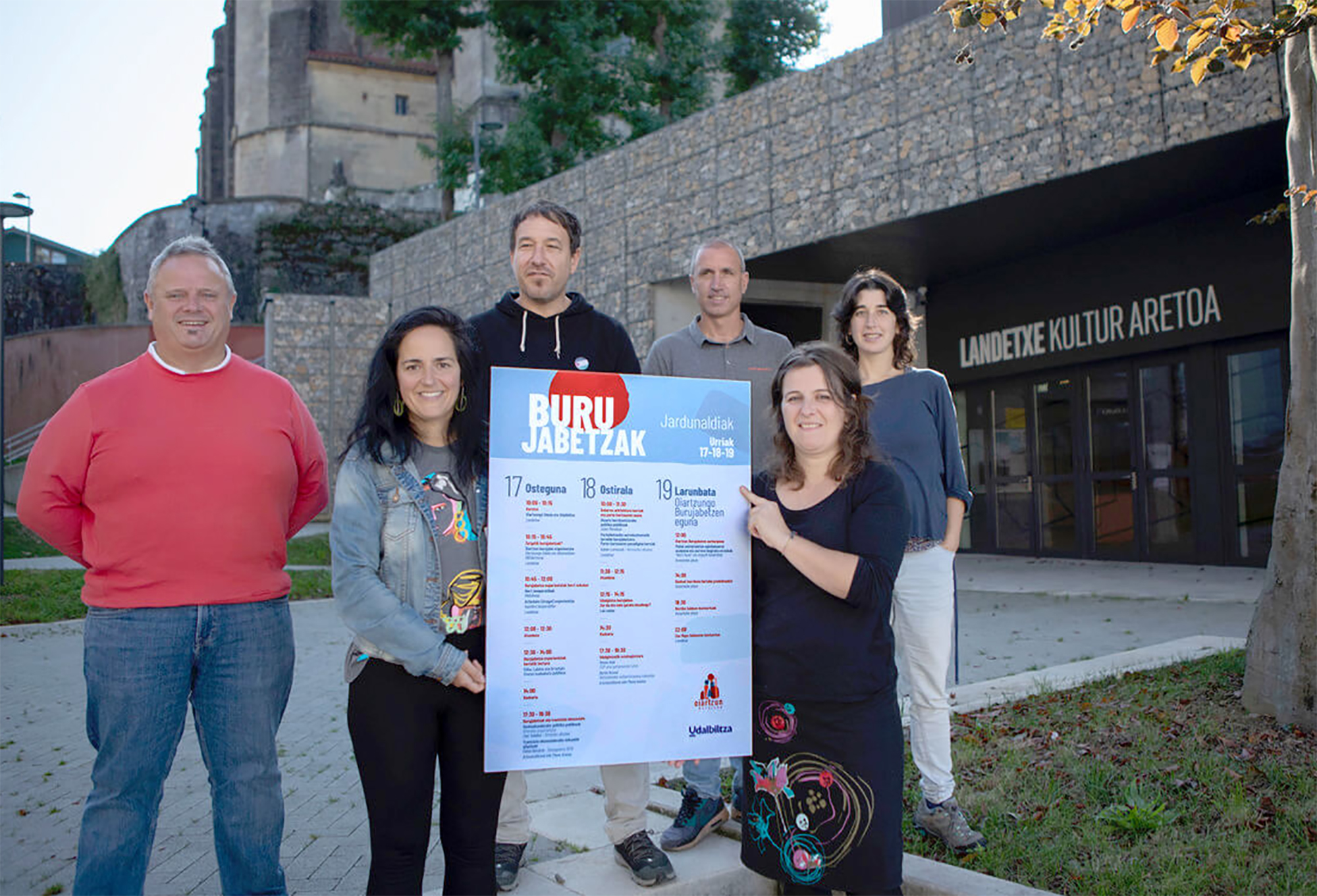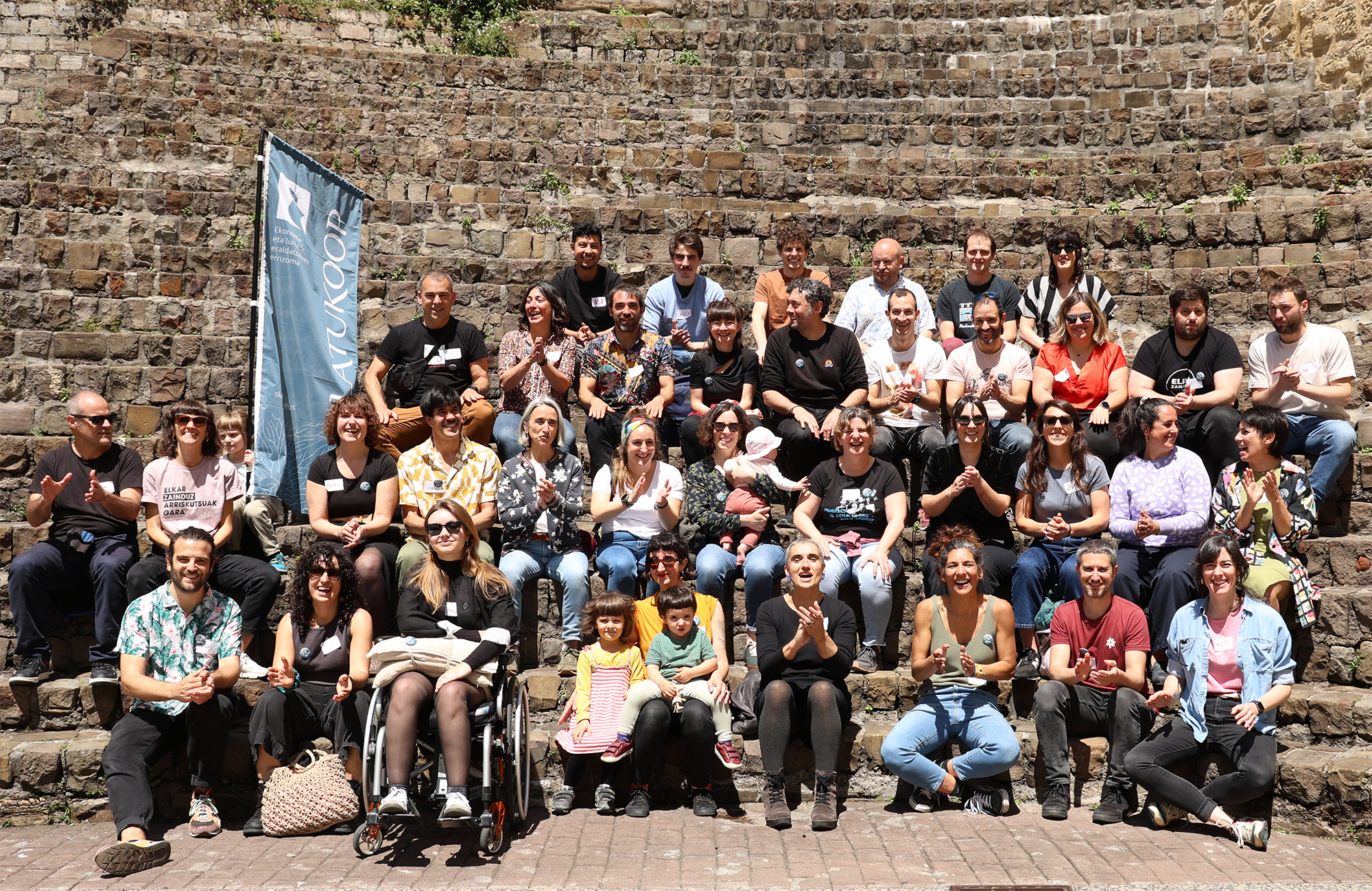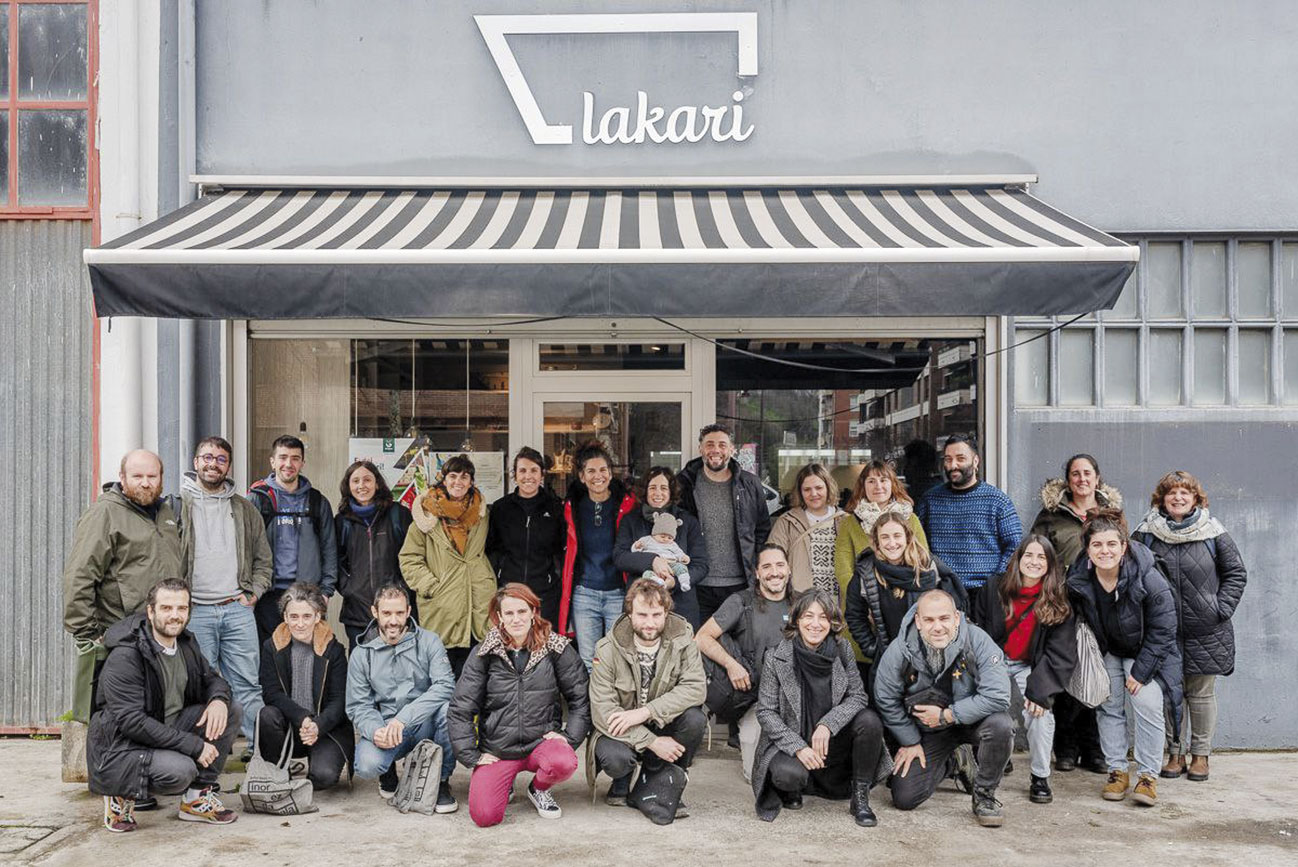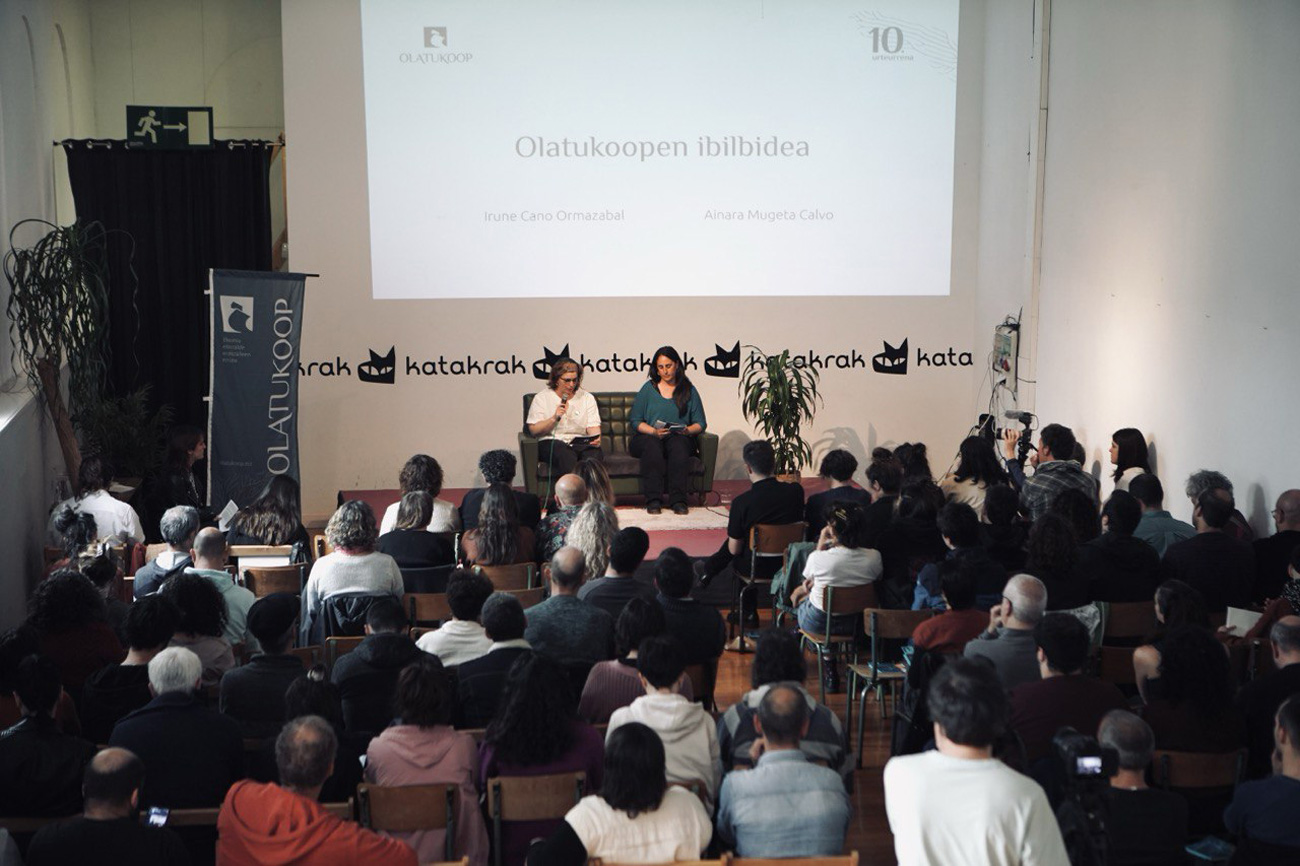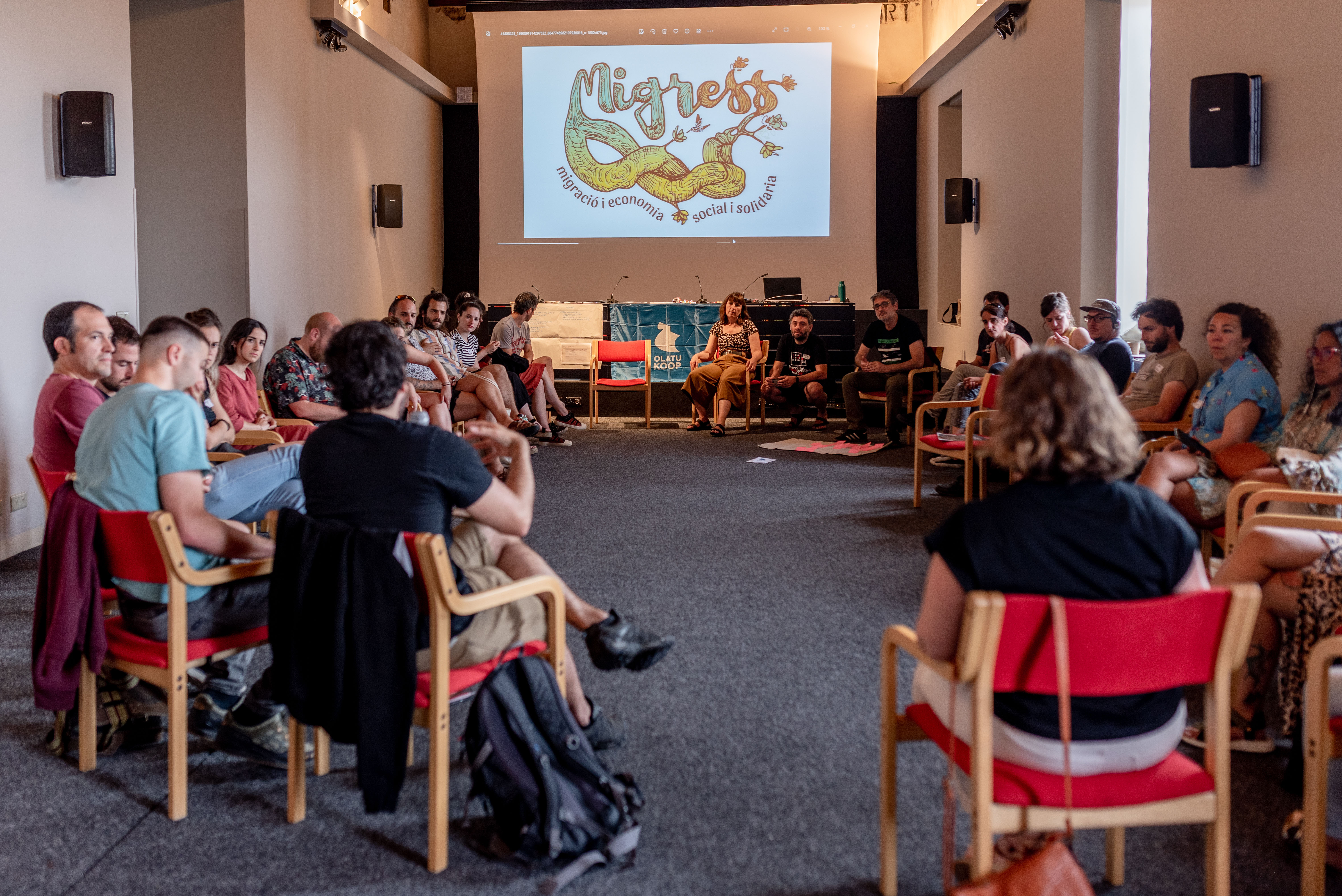Who is the company? That's the main question.
- Within the framework of industrial relations, the participation of workers in companies has become a key issue for many organisations. But what kind of participation are we talking about? Property, territory, decision-making capacity… In the region of Beterri-Buruntza an attempt is being made to create an ecosystem of democratic companies of integral participation.
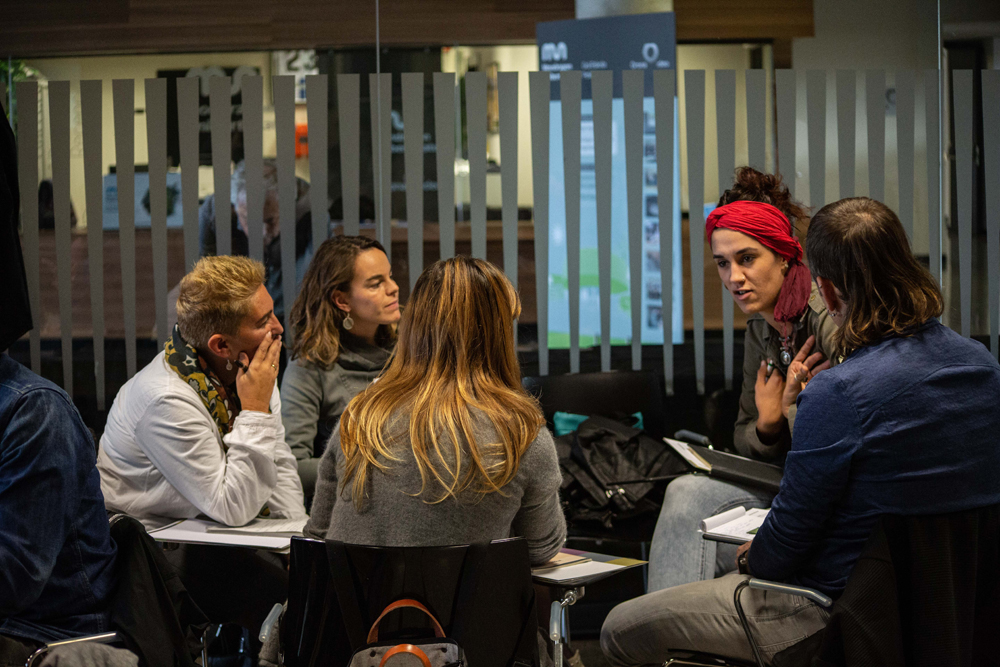
Why participate? To be more competitive or more democratic? This is the question that we put five years ago to various interlocutors at a round table in Larrun magazine. Thus, the concept of “New Business Culture”, marketed by the Gipuzkoan employers – “all in the same direction” – was not yet known, but the contradictions were previously perceived: “How can we all be interested in the idea of participation when we have very different goals?” asked Beñat Irasuegi, a member of OlatuKoop. Participation can be a double-edged sword, and companies have launched a programme in Beterri-Buruntza to use it democratically.
Beterri Saretuz aims to create a participatory entrepreneurial ecosystem. It is an initiative of a group of companies in the region – among them ARGIA – that make up Hernani, Lasarte, Andoain, Usurbil, Astigarraga and Urnieta, supported by the City of Beterri-Buruntza and the Provincial Council of Gipuzkoa, whose ultimate objective is to take steps in the democratization of the network.
On November 7, a first conference was held in Orona-Ideo in Hernani to learn about experiences and collect contributions from companies, and during the course more sessions will be held with the aim of designing a participation guide.
.jpg)
However, it takes longer to fertilize the soil of the initiative. The node and network of processing companies in the region have been meeting since last year as part of a long-term learning process. Hence the idea of launching a programme to promote democratic participation.
One of the main conclusions of the first day of Orona-Ideo was that the fundamental pillar of participation is property: “Who is the company? That is the big question,” stressed Aitor Bengoetxea, director of the GEZKI institute, at his pre-conference (see page 35). But other key elements also emerged: to maintain the link with the territory, to respect the processes and rates of affiliation of the workers, to distribute salaries and responsibilities…
Being born from crises, growing up facing crises
Representatives of the five social economy companies (Mitxelena Workshops, Ventas Legaia, TaPuntu, Fagor Ederlan and ARGIA) spoke in Hernani on unusual internal issues. In many cases, the roots of the social economy have matured in times of crisis and steps have been taken to empower workers.
Representatives of the five social economy companies met in Hernani. In some cases, the roots of the social economy have matured in times of crisis and steps have been taken to empower workers.
The lamination plant created by Victorio Luzuriaga in Usurbil underwent a remodeling of the 1980s crisis and was purchased by Fagor. After several years of uncertainty, in 2011 workers began to integrate as partners in Fagor Ederlan.
“That of participation changed us,” says Rubén Trincado, head of staff of Fagor Ederlan of Usurbil. We became people in ownership, in management and in outcomes. Before we could say nothing, even those who worked on the basic tasks followed the guidelines set out above and were not so democratic. And that did change us.” After the hard years of the Great Recession, in 2015, 70% of the Usurbil team was a partner: “With the crisis of the 1980s, only people entered, and when they began to retire, the new ones entered as partners.”
Also in the Mitxelena Workshops of Hernani, in the midst of the crisis of the 1980s, the workers decided to intervene when one of their owners committed suicide and his brother left the company. Alaitz Tolosa explains the situation: “All the workers were from the region, of great social consciousness, from the left and from the same generation. The decision was made in solidarity, both in the people and among them. That was key.”
Although it was initially a working society, in 2000 it became a cooperative: “The reason? They had more crises and realized that being a cooperative was the only option for the business to keep going: sharing property, but not only between them, but also among all the news coming,” says Tolosa. In addition to the economic benefits, they also acted on the basis of other values and are now trying to recover them in Mitxelena.
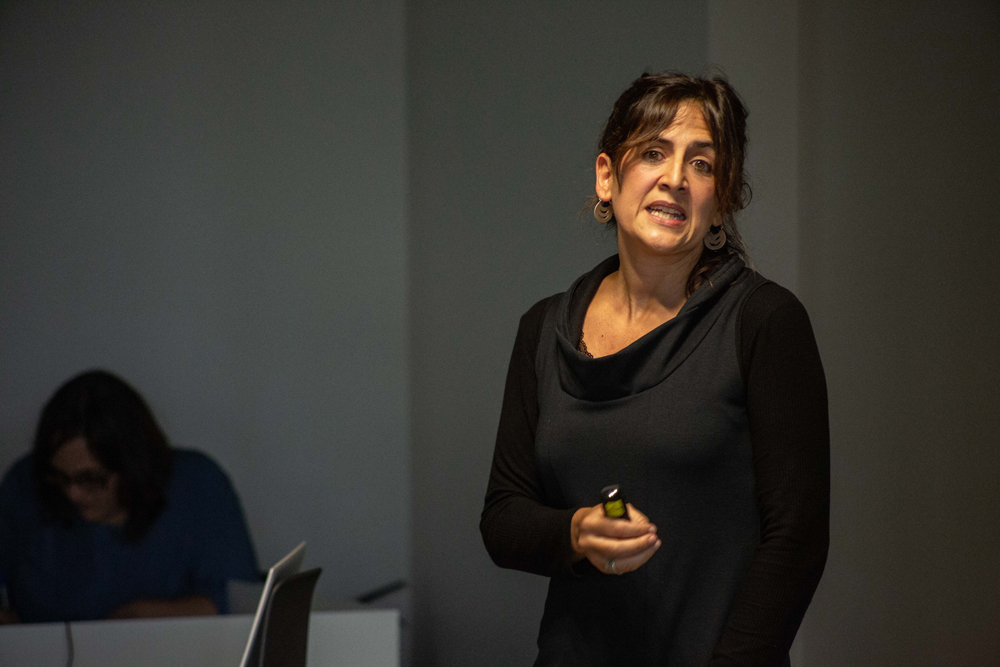
For example, this year the company turns 60 and has celebrated it with a sokadantza and invited not only their former workers, but also their partners to dance to the reproductive work: “They looked at each other and said, ‘Yes, we did too.’”
ARGIA also symbolized with sokadantza its participatory model, open to citizenship. 40 years ago, when they moved from the hands of the Capuchins to those of the workers, those who remained in the weekly lived a very complicated situation, and their militancy and commitment were fundamental to maintaining the communication project. The steps taken in recent years in ARGIA to equalize wages and make structures more horizontal cannot be understood without that past.

But how do we attract talent by matching wages? That was one of the questions that was put on the day. Although they have a salary for Fagor Ederlan’s job, in some cases they perceive less than in other companies: “This equality has created problems for us to get qualified staff, the values are there, but the money sends a lot,” says Trincado. In the case of ARGIA, the key to equalizing wages was the sharing of responsibilities, and the motivation that this generates.
When, what, who decides
One of the keys to ensuring worker participation is to organise a transparent flow of information. At Usurbil’s digital marketing company TaPunto do not have a model for it, but “our way of doing”, according to Mikel Olaiz. “This project was born by bringing three people together in the university cafeteria in our spare time, we have not used external tools, it has come out naturally.” But if they have clear criteria, which are the decision points and which are not: “Whatsapp is not a decision place and it’s not the time to have coffee,” says Olaiz. Everything can be decided, but not at any time and in any way.”
"WhatsApp is not a place to decide and it is not the time to drink coffee. Everything can be decided, but not at any time and in any
way" Mikel Olaiz (TaPuntu)
Olaiz believes that another problem is that not everyone wants to decide, or at least not what it is. And this has a close relationship with the affiliation processes and with the training of workers based on different values. In Fagor Ederlan, for example, specific training and specialized reports are carried out with the person who has to be a partner. In Mitxelena Workshops, on the contrary, they observe a gap in this field: “Does it work? Well, inside... we said so far,” explains Tolosa, “and so we could get partners that did not have a real cooperative character.” At the Hernani plant, a complete process is being designed to change these situations. In this sense, TaPunto’s people find it very important to “know the person” and respect their rhythms.
In any case, slower or faster, everyone agrees on the need for continued care and change to get companies based on participation and internal democracy.

Aitor Bengoetxea GEZKI-ko zuzendariak parte-hartzearen inguruan legeek dituzten mugak eta aukerak azaldu zituen Hernanin, ahoan bilorik gabe: “Lan-zuzenbidea Estatuaren eskumen esklusiboa da eta parte-hartzearen gaian ere berak du arkatza”. Ohartarazi zuen legeek ez dutela asko laguntzen eta enpresaren “bertikaltasuna” bere egiten dutela: “Sistema klasikoan zein da langilearen parte-hartzea enpresan? Lan egitea. Hortik aurrera dena malda gora da… Baina mendiak igotzea gustatzen zaigu”. Hala, legegilea oso zuhurra izan arren, parte-hartzearen gaian “zelaia zabalik” dagoela ere azaldu zuen.
Bere esanetan, enpresaren jabetzan dago gakoa, “baina horregatik da sozio-politikoki hain zaila lortzen”, gaineratu zuen. Lan-sozietate eta kooperatibek parte-hartzea euren DNAn txertaturik izan dezaketen arren, beste enpresetan ez da hala, “hor jokatzen da partidua”. Langile eta enpresaren arteko akordioa lortzea izan liteke bidea, baina “aldebiko konfiantza” gabe nekez egingo da aurrera.
Bengoetxearen ustez, estatuak arkatza izan arren “ez duenez ezer egiten”, beste eragile eta erakundeengan dago parte-hartzea “gutxienez” sustatzearen ardura eta erronka.
Budgets and the closure of annual accounts are nothing more at this time, from the domestic economy to most of the socio-economic spaces that we share. Large companies have begun to extract calculators and implement major plans for 2025. Small and medium-sized institutions and... [+]
One of the major projects developed by Olatukoop with other actors is KoopFabrika, a programme created in 2017 with the aim of boosting social entrepreneurship and which is currently underway.
Initially, the first idea was that the cooperatives and agents that gathered around... [+]









